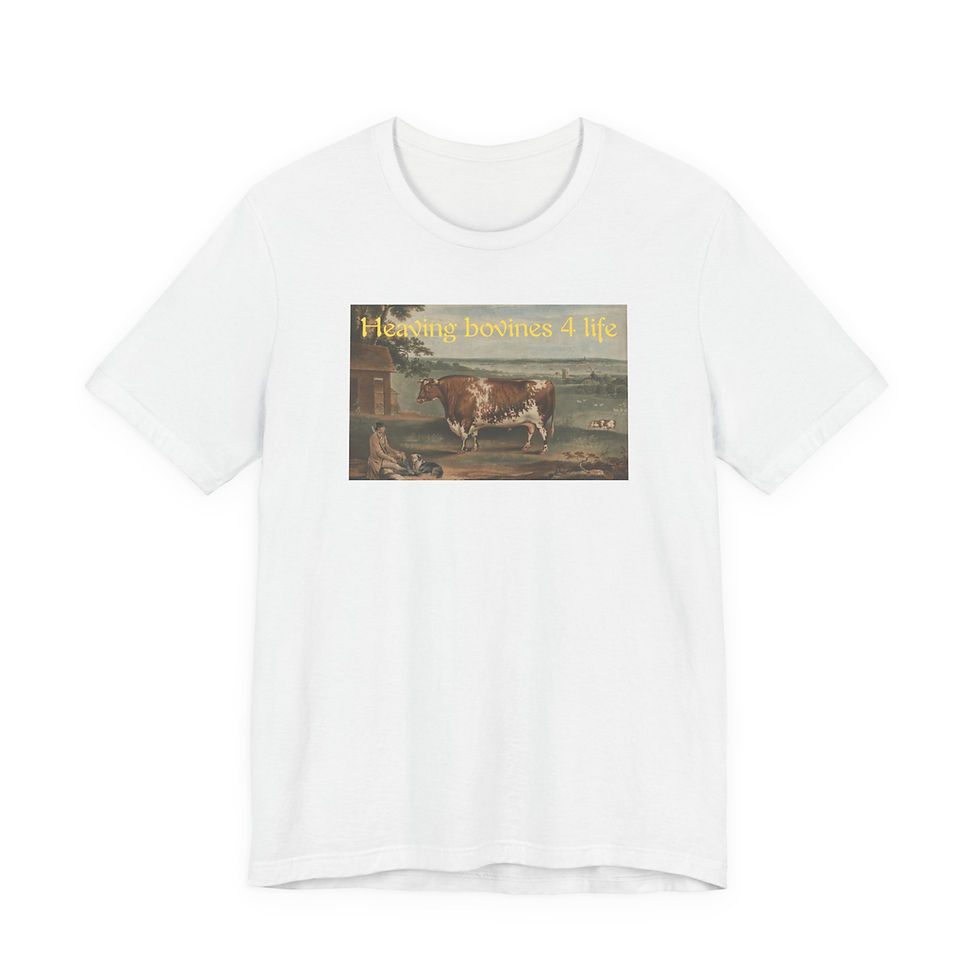"Is this chocolate or blood?"
- hamiltonseejones
- Mar 14, 2025
- 4 min read

Yesterday morning I slept in as long as possible after a late night of decompressing after another trip to the hospital. Our toddler had an allergic reaction to (we think) some sunscreen at his school, Blair called me as the ambulance was on its way to him.
The boy is fine, he’d been given Benadryl and was recovering quickly, but we were advised to still get him checked out. So after a few hours at the children’s hospital, Blair and I processed it all and reminisced on previous hospital visits until around midnight.
I’m working from home today, and as our spring weather is warming I decided upon wearing a pair of ‘previously worn but not yet dirty’ shorts that were indeed dirtier than I recall when I was placing them in their laundry purgatory.
“Is this chocolate, or blood?” I muttered to myself.
It matters not, as I’m wearing them anyway, regardless of the source of the stain. But this mutterance had me reflecting on my lessons learned in the last several weeks.
One of the biggest topics on my mind has been the diagnosis of depression. While medical advances have unveiled quite a lot of information on mental health over the previous hundred years or so, it seems the western understanding of mental health is still in its infancy. Labeling someone as ‘depressed’ is as helpful as saying someone has diarrhea. These are both unfortunate conditions that say nothing of the source of the problem.
The ‘diagnosis’ of depression is bullshit and lazy. The doctors can provide drugs, but if they were to actually help identify the source of the depression, and help guide someone to address the cause, they wouldn’t be able to sell the drugs anymore.
Depression is the outcome of repressed emotions. If emotions are energy in motion, and say this energy gets stuck somewhere, it seems like this causes problems.
For a lot of folks, sadly, joy is a commonly repressed emotion. Very often, caregivers are intimidated by or bothered by children’s comfort with joy. The caregiver will respond a certain way, and to ensure chances of survival, the children will adapt their behavior to suit the comfort of the caregiver. The children will repress their joy to continue to receive food and shelter from caregivers.
For me, joy wasn’t necessarily repressed, but growing up, my family was uncomfortable with expressing more difficult emotions like anger and fear. “We don’t act like that…” was the common response to anger or frustration in our household, or some iteration of “you shouldn’t be bothered by that”.
Anger is what helps us defend ourselves. If we don’t allow ourselves to express anger, we would eventually lose the ability to advocate for ourselves. Your confidence would diminish and your self-esteem would dwindle since you feel it would be inappropriate to stand up for yourself.
So I’m finding that to avoid deeply depressive episodes, I need to express these feelings that have been historically repressed.
What I noticed from my loved ones when I shared my struggles was that they often were
overcome with emotions of their own that needed tending to. They wanted me to stop feeling so that they could avoid confronting discomfort. “You shouldn’t let that bother you…” then they would open up about a time that they were struggling, that happened to be much worse that whatever I’m going through (akin to the platitude of ‘uphill to school both ways’). So it turned out that the compassion that I was looking for, was being looked for by my loved ones too.
Those who reared you into believing that certain emotions were not okay will find it difficult to hold compassion or patience when you start expressing those emotions. To expect your family to understand and accept a version of you that defies what they raised you to be may not be realistic.
From my family, I’ve heard, “your feelings aren’t real”, and “maybe if you went back to drinking alcohol, you’d make better decisions…” among other unhelpful witticisms.
But I’m convinced this isn’t anyones’ fault– but generational cycles of reactions. Our parents had parents who did the best they could with the wisdom bestowed upon them by their parents and so on.
Though, I have found a loyal confidant in an estranged aunt. Despite the inconsistent presence in each other’s lives, when I shared my struggles, Carey listened—with an impressive dearth of judgement.
Carey helped me see that compassion needs to come from the self— seeking it externally will only lead to disappointment. I couldn’t imagine the helplessness and who-knows what other complicated emotions the family goes through in the attempt to help a loved one recover from depression, but those feelings seem to get in the way of understanding and extending compassion.
Lately, I’m feeling like my ‘dark night of the soul’ is receding as the slightest hints of daylight indicate the impending dawn. I won’t say that food tastes better, or colors seem brighter, but the wisdom that I’m coming away with has a satisfaction even greater than such observational phenomena.
I still can't confirm whether this stain on my breeches is chocolate or blood, but it seems life is full of both. I've never harvested cocoa, but my understanding of any other agricultural endeavor leads me to believe there would be at least a little bloodshed involved in the trade for chocolate.
We don't get to taste the sweetness of chocolate without first putting in the work of overcoming the bitterness of the cocoa.
Is this chocolate or blood? Probably both.



Comments